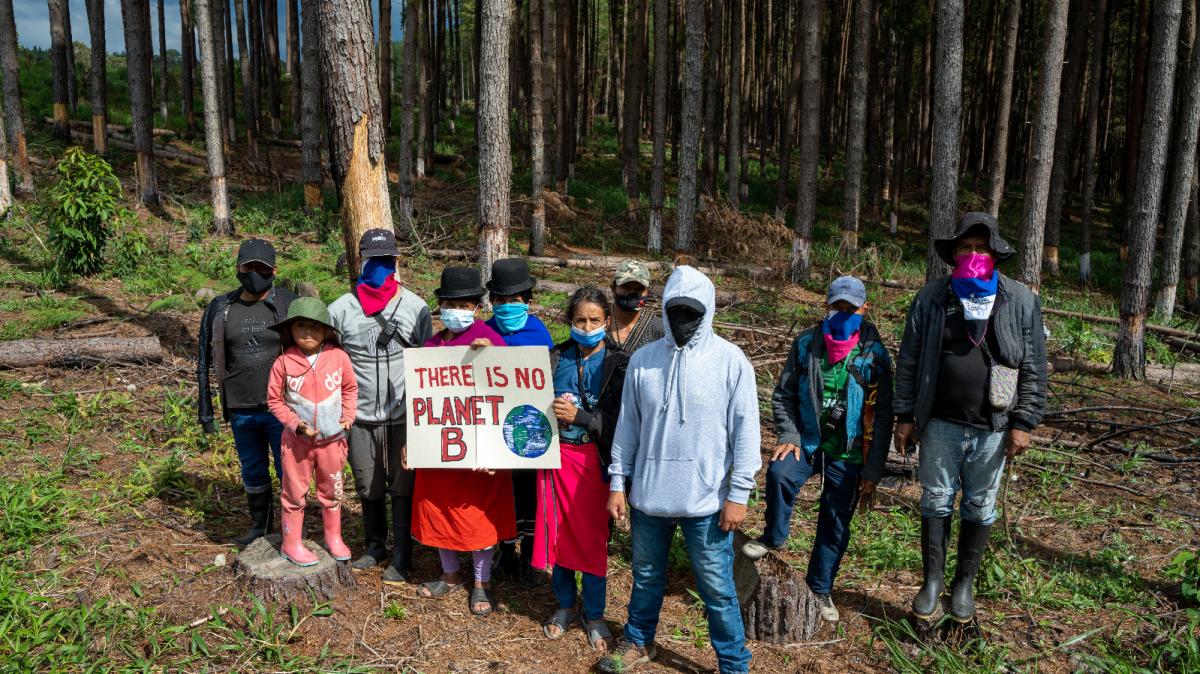 Huber Samir Camayo Fajardo died young, at 23 years old. He was just in the wrong place, was with his father in the field in the municipality of Cajibío, in the Columbian Cauca, when the Mobile Riot Squad, shot at him and disappeared. The killing by of Huber Samir Camayo Fajardo was announced by the Jaime Garzón Human Rights Network.
Huber Samir Camayo Fajardo died young, at 23 years old. He was just in the wrong place, was with his father in the field in the municipality of Cajibío, in the Columbian Cauca, when the Mobile Riot Squad, shot at him and disappeared. The killing by of Huber Samir Camayo Fajardo was announced by the Jaime Garzón Human Rights Network.
It was July 27 2021. That day was supposed to be a day of joy and happiness in Cajibío. The Misak and Nasa Indigenous peoples in the Indigenous Authorities of the Southwest, together with the peasant farming population had decided to reclaim their ancestral land stolen decades ago by the paper company Smurfit Kappa in Cajibío, Popayán and Tambo. Their plan was to "Recover the land and the memory in order to recover everything".
Back in in the seventies, Pulpapel, now Smurfit Kappa, started purchasing land in the department of Cauca, in order to introduce pine tree cultivation. Some of this land was in the process of being reclaimed by indigenous paeces communities, who consider this to be ancestral territory. Fearing that the new plantation activity would vanify the land reclaiming process, the ndigenous people occupied the land, to be immediately and violently evicted by the Army.
The conflict continued until the present days. When indigenous communities reclaim their ancestral land Smurfit Kappa resort to the special police.
Accused of having called the notorious Mobile Riot Squad before the Cajibío’s killing, the company did not deny: "we recourred to to the institutions in order to obtain the protection of our rights to private property" - the ‘private property’ being ancestral land stolen to the indigenous communities. The consequences were predictable, as that police unit is well known for shooting on sight and other human rights abuses. For a company that claims to respect human rights and to empower people and communities, this is quite a poor performance.
According to an investigative report released today by SumOfUs and the Latin America Solidarity Centre, Smurfit Kappa pine plantations are heavily affecting the water table of the region, drying he Cañas Gordas stream, which used to supply the local aqueduct. Similar situations have been reported in the nearby areas of Corozal (Risaralda); in Ginebra, Yotoco and Vijes (Valle del Cauca). In the same region company has been also sentenced for contamination with agrochemicals (Restrepo, also in Valle del Cauca).
A petition organized in support of the Indigenous Misak and their struggle for land rights gathered 150,000 signatures.
Indigeonus representatives protested in front of the Smurfit Kappa AGM to bring there the voices from their communities. They demand Smurfit Kappa to restore the territory and return the lands to the Misak, Nasa and farming communities, in order to put an end to the negative environmental impacts of their operations and return ownership to the groups to which the lands belong. Narella Forte, a co-ordinator with the Latin America Solidarity Centre Co-ordinator who joined the protest, said that it was not only the lands of indigenous people that have been taken, it is the environmental damage that is irreversible".


